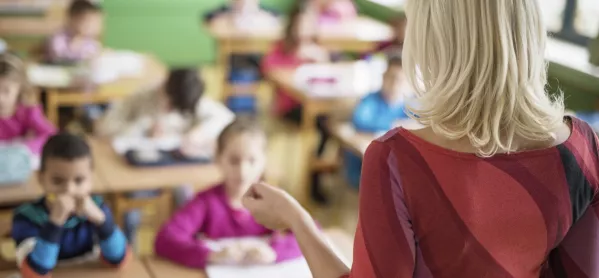This school year, there is a cohort of children who are likely to do much worse than their peers, but whose disadvantage is largely hidden. These are children who have been adopted from care or who are the subject of special guardianship orders. They do less than half as well as their non-adopted peers at the end of primary and secondary school.
These gaps in attainment at school are astonishing, especially in a policy climate that has championed the Pupil Premium and in which schools are implored to “close the gap” or, at least, to “diminish the difference”.
The attainment gaps are themselves the product of three further gaps - in understanding, in empathy and in resources.
Education professionals too often fail to grasp the impact of early childhood trauma that is typically part and parcel of the adopted child’s experience. Many don’t understand how this trauma can play out in the reactions of adopted children to circumstances that might seem unexceptional to others. Schools are not using resources such as the Pupil Premium appropriately to support adopted children’s participation, progress and attainment. Discounts on school trips are hardly the solution when the child’s issues are post-traumatic rather than socio-economic.
What we know about the impact of trauma and attachment has vital lessons for meeting the needs of children and young people who are experiencing trauma for a myriad of other reasons: recent migration or relocation, poverty, family upheaval or breakdown, abuse, bullying.
So what’s the answer? Meeting the needs of traumatised children in the classroom means rebalancing the relationship between inclusion and attainment. This has been at the heart of my own work for more than two decades.
Too often, a call for inclusion, especially when coupled with a (valid) complaint about a high-stakes examination and testing system - is misread as a plea to “go easy” on children sometimes portrayed, with the best of intentions, as “poor little things”.
Instead, we need to be equally demanding on both sides of the attainment-inclusion equation. Building inclusion and acknowledging the post-traumatic and attachment needs of children adopted from care - and many other young people - is not an alternative to academic success, but a prerequisite for it.
Counter-intuitive though it might seem, a narrow focus on driving attainment up through traditional means is likely to work against raising the attainment of disadvantaged children, precisely because it takes insufficient account of the additional barriers that these young people face.
Instead, the smart way to build the progress and attainment of adopted children, and other victims of childhood trauma, is to start with building their inclusion, thereby establishing a firm foundation from which they can achieve. Too often, attainment-first strategies confirm the exclusion of the marginalised by taking no account of their starting points. Inclusion-first strategies create an environment in which all can achieve. And Pupil Premium funding (an entitlement for children and young people adopted from care in England and Wales) can help to fund these intrinsically personalised interventions.
In terms of progress and attainment, we need everybody in education to have expectations that are as high for adopted children as they are for others. But they also have to understand that these expectations will only be realised if we pay particular attention to their specific needs, especially their need to feel secure and included in school.
If we are serious about closing the gap, we need consistency of expectations and outcomes, not one-size-fits-all curriculum frameworks and behaviour policies. It is time to acknowledge the impact of trauma. Doing so will certainly enable adopted children to succeed. Many others are bound to benefit too.
An adopter and an adoptee, Dr Tony Breslin has been a member of the Adoption UK Board of Trustees since 2014. He is a teacher by profession, a school governor, and a former GCSE Chief Examiner and Local Authority Education Adviser.
